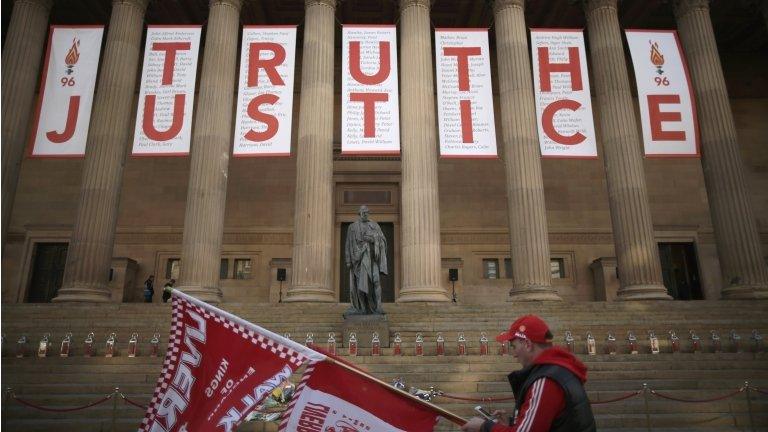Tory minister hid in cupboard to avoid Hillsborough families, says ex-PM
- Published

Ninety-seven people died as a result of the crush at the 1989 football match
A senior Tory minister "hid in a cupboard" to avoid meeting the families of the Hillsborough disaster, Theresa May has said.
The former prime minister refused to name them as she made the claim.
She said meeting the relatives herself convinced her to pursue the work which led to the original inquest verdicts being overturned.
Ninety-seven Liverpool supporters died as a result of the April 1989 crush during the FA Cup semi-final.
Speaking to BBC Radio Merseyside, Mrs May said that when she became home secretary in 2010, not all of her ministerial colleagues were keen to meet the grieving families.
She said that a senior minister had hidden in a cupboard rather than attend.
Whilst she would not name the person concerned, she said "it exemplified a sense" of the attitude of some colleagues.
Mrs May added that "others thought it happened so long ago there's no point in revisiting it, some thought it had happened under a Conservative government - why should another Conservative government open this door?"
She said she was conscious that as a Conservative politician she would have to work harder to gain the trust of the families and survivors, and in Liverpool, where the party has not enjoyed much support.
"I think it was a case that the families couldn't trust anyone in authority and they'd been hitting their head against a brick wall for so long," she said.
Mrs May said she had to decide whether to continue with the work of the independent panel on Hillsborough.
It had been set up by the previous Labour government, after the then-Culture Secretary Andy Burnham was heckled by survivors at an Anfield memorial for the fans who died.
The panel was to consider and publish documents relating to the disaster which had never been made public.
Mrs May said her mind was made up to continue the work when she met Jenni and Trevor Hicks, whose daughters Vicki and Sarah had died, and Margaret Aspinall, who had lost her son James.
She said: "It brought home to me what had happened and the impact it had on families. Remember this was 2010 - the tragedy took place in 1989, and yet all those years on the families were fighting.
"That was a critical element - it showed they hadn't given up because they were absolutely clear that the fans weren't responsible for what had happened.
"It shone through in everything they said to me."
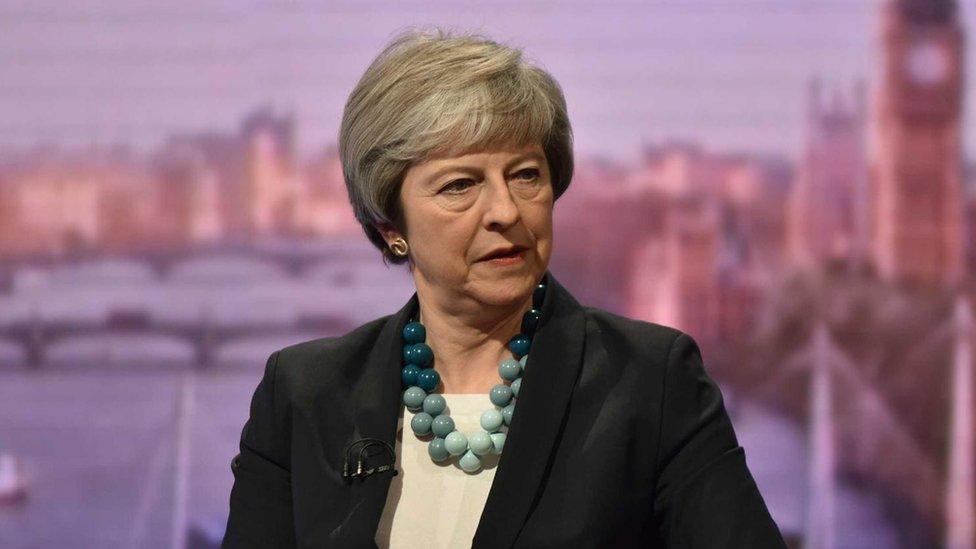
Theresa May says she initially believed the authorities' stories which blamed the fans
The work of the independent panel concluded that no Liverpool fans were responsible in any way for the disaster, and revealed that police statements had been changed in the aftermath of what happened.
The original inquest verdicts of accidental death were quashed in 2012, paving the way for fresh inquests, which returned a conclusion of unlawful killing for those who died, with fans' behaviour exonerated.
Reflecting on the 1989 reporting of the disaster, Mrs May admitted that she had initially accepted the view that fans were to blame.
"I have to confess that at the time I believed the stories that the authorities were saying - hearing all the stories that were being put out that it was the fault of the Liverpool fans," she said.
"That fed into an environment at the time where there was a focus on football hooligans on violence at matches and I guess for a lot of members of the public what was being told by the authorities fit into that pattern and people accepted it".
She said that despite police failings being highlighted in initial reviews of the disaster, "it hadn't been picked up".
Her own views changed on meeting relatives of the fans who died, and speaking to Bishop of Liverpool James Jones, who became her advisor on Hillsborough.
Jenni Hicks recalled that they had had the 20th anniversary of Hillsborough and "we still didn't know what had happened to our loved ones".
She said they had met with several home secretaries but it was Theresa May who had been the "only one that really listened, but not just listened - she heard" and then "acted upon what we'd said".
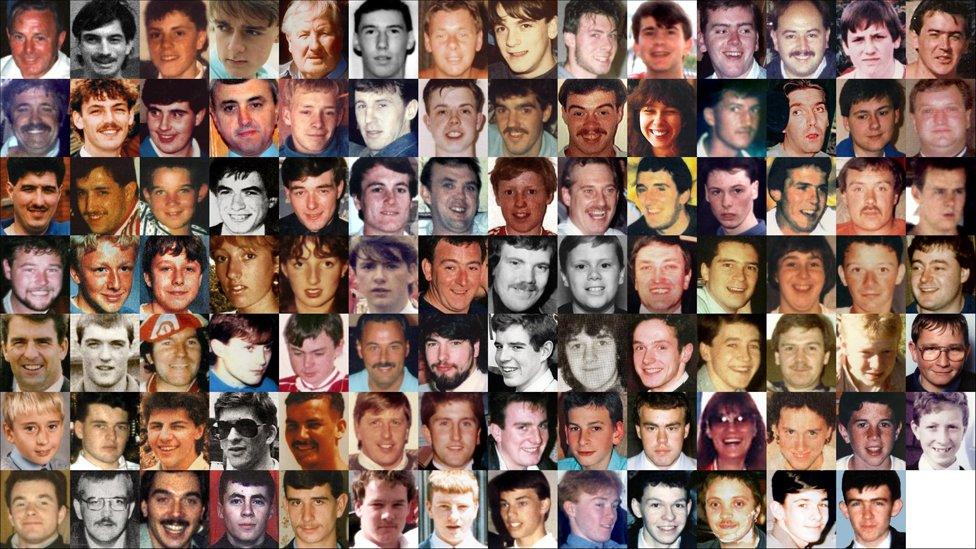
Ninety-seven people died as a result of the 1989 Hillsborough disaster
In 2017, Bishop Jones published The Patronising Disposition of Unaccountable Power, external report which aimed to ensure "the pain and suffering of the Hillsborough families is not repeated".
Mrs May said she believed one of his recommendations - that of a public advocate who would support victims of disasters like Hillsborough - would be introduced by the end of this Parliament, but admitted progress had been slow.
She said: "If you look at the length of time of this - first inquests, independent panel, second inquests - how much better is it for families if we can get to the truth at an earlier stage?
"How much better is it for government not to have these things hanging over them, but be able to learn lessons at an earlier stage?".
Mrs May said meeting the Hillsborough families was the "thread" which eventually inspired her to write her book, The Abuse of Power.

Why not follow BBC North West on Facebook, external, X, external and Instagram, external? You can also send story ideas to northwest.newsonline@bbc.co.uk
- Published25 July 2023
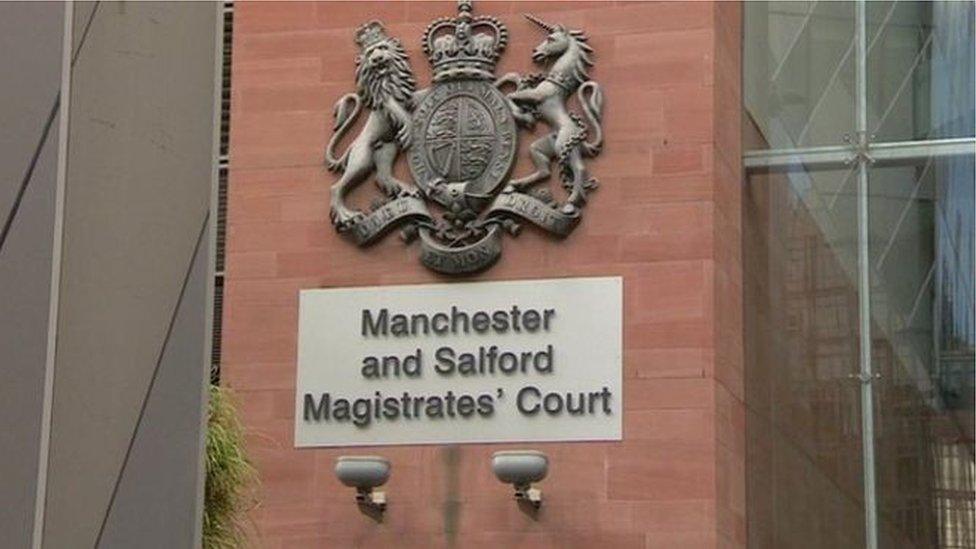
- Published7 August 2023
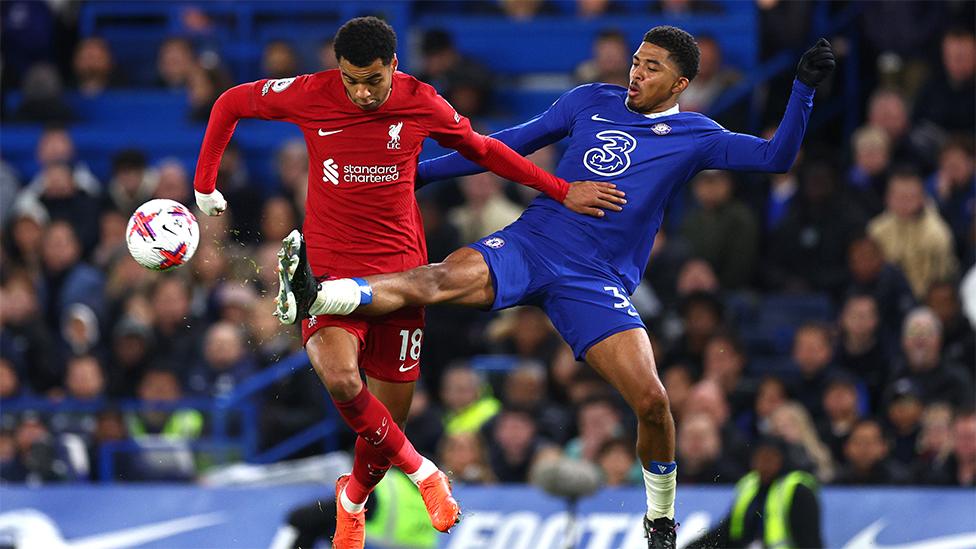
- Published14 April 2022
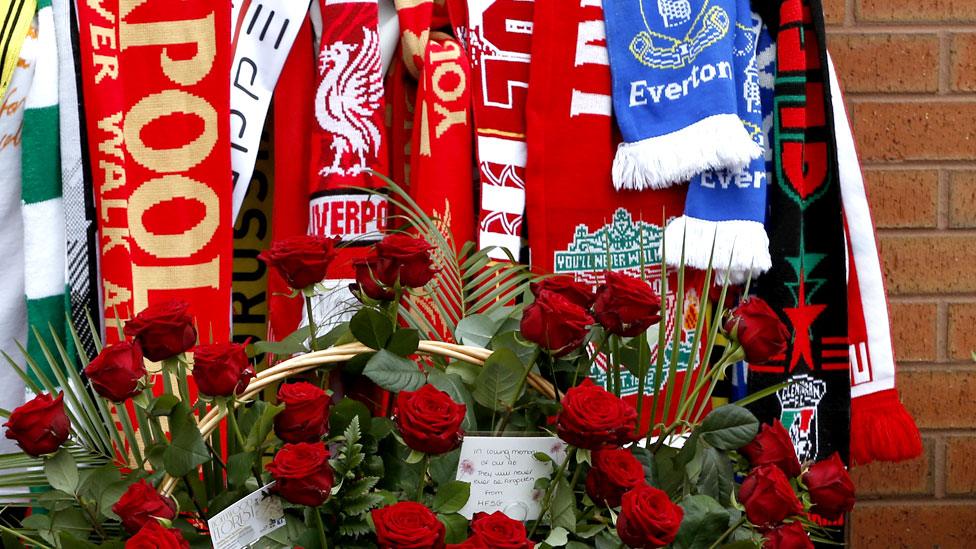
- Published1 February 2023
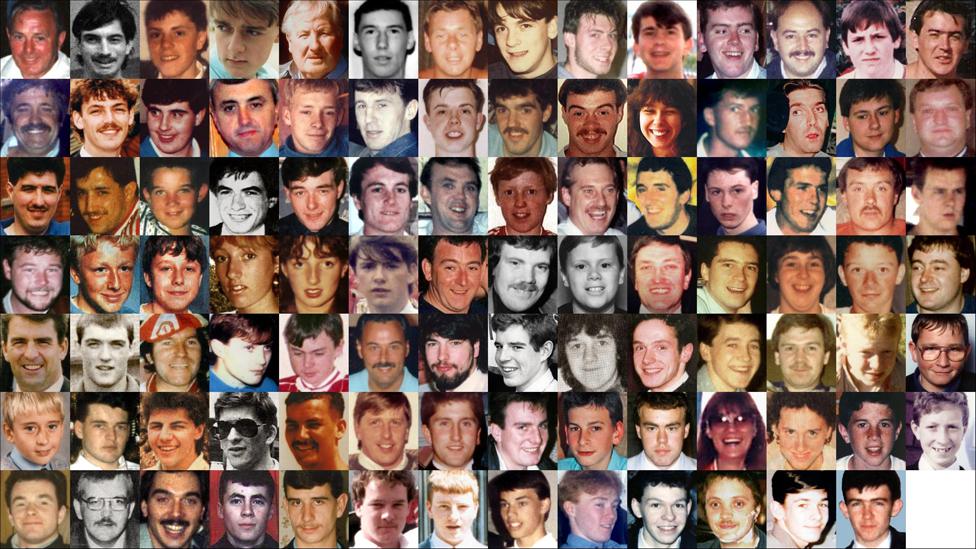
- Published29 July 2021
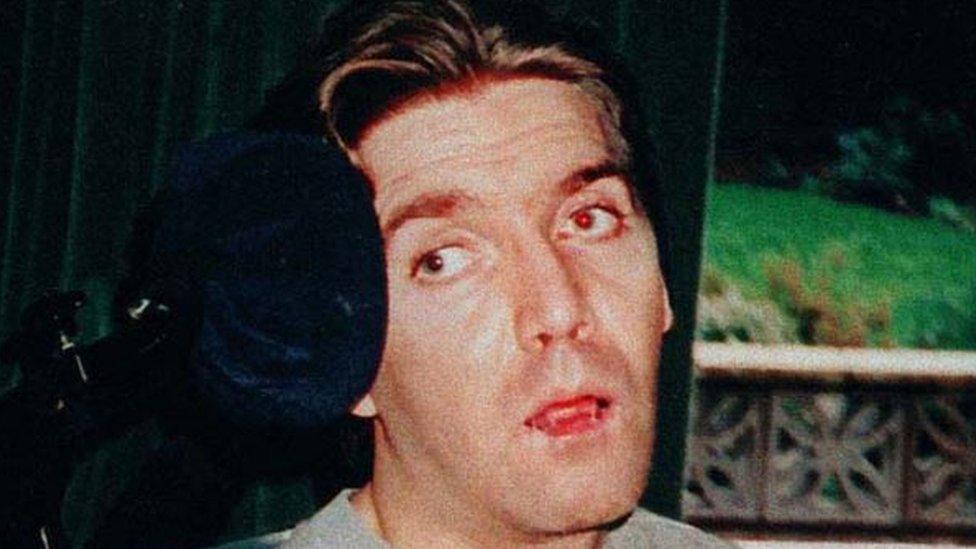
- Published26 April 2016
